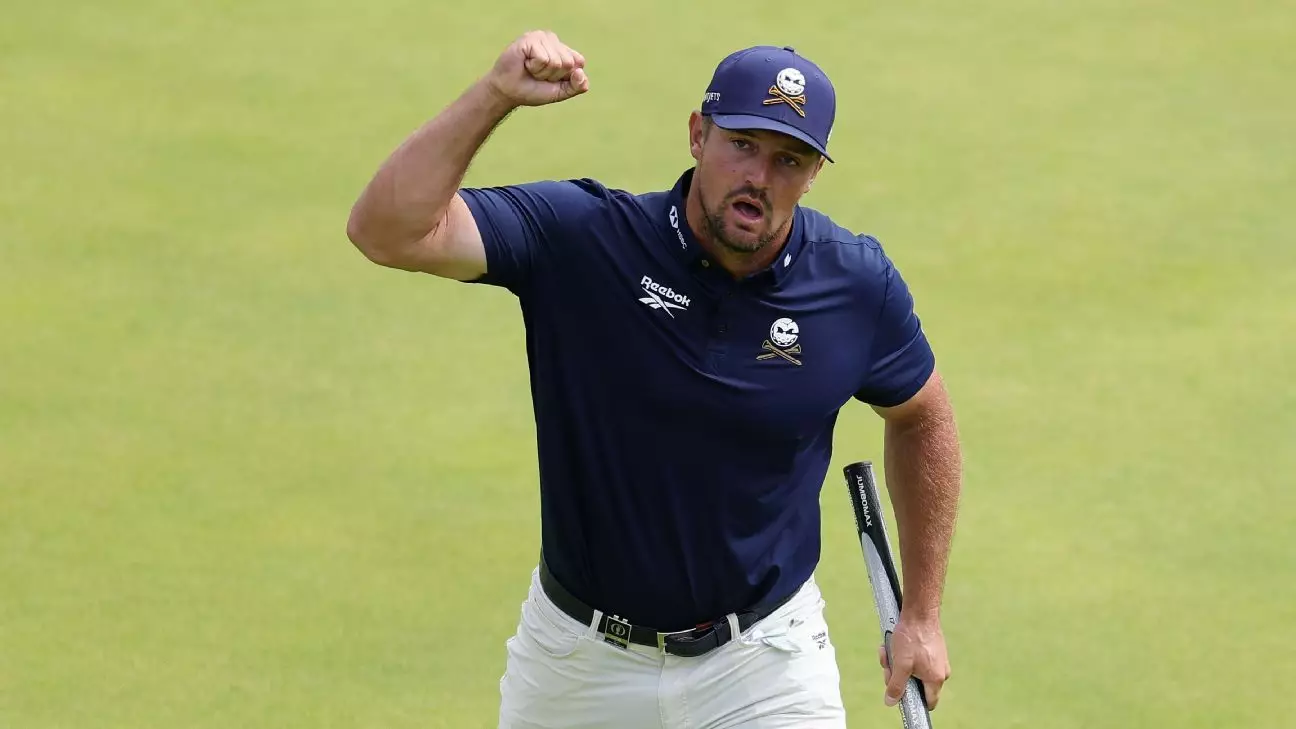Bryson DeChambeau’s recent performance at Portrush reveals a harsh truth about professional golf: perseverance is often overlooked in favor of flashy beginnings. His initial 78 painted a bleak picture, one that might have prematurely discouraged many. Yet, DeChambeau refused to succumb to despair. Instead, he demonstrated that resilience and mental fortitude have greater rewards than mere talent alone. His subsequent three rounds under par—including a resounding 64—serve as a testament not just to skill, but to grit. This narrative fundamentally challenges the often superficial view that talent guarantees sustained success. For genuine progress, players need to embrace setbacks as catalysts for growth, not as final verdicts.
This journey underscores a vital critique of how the public and media tend to idolize quick victories, neglecting the arduous process of overcoming adversity. DeChambeau’s turnaround exemplifies that true strength lies in the capacity to adapt and persevere when circumstances are less than ideal. His recovery underscores an essential truth: success in professional golf, and perhaps in life, is less about unblemished records and more about the courage to face failures head-on.
The Duality of American Golf and the Myth of the “Perfect” Athlete
While DeChambeau’s comeback is inspiring, it also exposes deeper flaws within the narrative of American excellence in golf. There’s an almost mythic expectation that American players should dominate effortlessly, projecting an ideal of athletic perfection that often ignores the individual struggles behind the scenes. DeChambeau’s varied performances, highlighted by his fluctuating form, challenge this myth. His candid acknowledgment of preferring “fair conditions,” and the admission that he still struggles against rain and wind, humanizes a sport that is often perceived as a test of technical mastery alone.
Furthermore, his comments about team golf, emphasizing individual brilliance within a collective effort, U.S. Ryder Cup scenario, reflect a nuanced understanding of American sports culture. There’s an inherent tension between celebrating individual achievement and fostering team cohesion—an essential balance that American golf often neglects. DeChambeau’s insights reveal that the strength of a team doesn’t solely rest on the most talented players but on their capacity to elevate each other without losing their individuality—a subtle critique of how American golf sometimes prioritizes star power over team synergy.
The Politics of Pick-and-Choose Patriotism in Golf
The Ryder Cup, often touted as the pinnacle of team competition, becomes a mirror reflecting broader political and social dynamics. DeChambeau’s optimistic declaration that his resurgence could secure him a spot on the team brings to light an underlying issue: selection processes are often less about merit and more about politics and narrative-building. Captain Keegan Bradley’s indecision about whether to play or captain adds a layer of uncertainty—highlighting that leadership in American golf is susceptible to the same ambiguities that plague larger institutions.
The fact that Bradley has yet to finalize his role and is considering contingency plans suggests an insecurity within the system—a desire to appear versatile rather than confident. His statement about waiting to see who performs best strongly hints at a pipeline that still values immediate results over long-term strategy. Meanwhile, DeChambeau’s mention of Bradley offering motivational gestures and “something inspirational” in players’ lockers subtly exposes how politics and morale-building play a role in team selections—sometimes at the expense of meritocracy.
The Need for a Balanced Approach in American Golf
What clearly emerges from these narratives is the urgent need for American golf to adopt a more balanced philosophy—one that values perseverance, team spirit, and genuine talent over superficial narratives of quick success or star-centric obsession. The sport’s vulnerability to flawed leadership decisions and its tendency to idolize individual heroics rather than fostering collective strength need to be addressed. DeChambeau’s experience reminds us that resilience and humility are often more impactful than raw talent or political maneuvering.
In an era where American sports are increasingly scrutinized for systemic flaws, the golf community must reflect on its values. Elevating players who demonstrate grit, teamwork, and integrity over those merely gifted but lacking resilience would mark a healthier, more inclusive future for the sport. The story isn’t just about DeChambeau’s internal battles on the course; it’s about recognizing that the true power of American golf lies in its capacity to evolve beyond superficial myths—toward a culture that champions genuine effort, cohesiveness, and integrity.


Leave a Reply